As a superhero movie, Black Panther is mediocre. That has hardly mattered. The movie’s importance, for most reviewers, lies almost entirely outside its story or even its political message. The mere existence of a modern superhero film with a majority-black cast has been considered a significant achievement. The role (and appearance) of women in its story has also been praised. In contrast, its writing and political message have unjustly received less consideration, even though this is a very well-written and well-composed story.
Based upon advice from Kenyan writer Binyavinga Wainaina’s satirical essay “How to Write About Africa,” the movie shines. Wainaina furnishes a litany of common clichés in literature about Africa, often used as a litmus test for newer works. Black Panther avoids nearly all the stereotypes Wainaina lists, except perhaps two. For example, he sarcastically notes that “the African sunset is a must. It is always big and red.” A scarlet sun does set in the movie, but this earns a pass because it is the villain who dwells on it. Second, Wainaina advises that “bad Western characters may include…Afrikaners.” The beefy arms-dealing breeker Ulysses Klaue fits the bill.
Unfortunately, Black Panther falls short when asked to be a movie, especially an action movie. The film has an underwhelming aesthetic, dull combat, and a minor but troublesome plot hole. A predominance of wood architecture is nice. Largely, though, the movie is dominated by burnished steel Blender-rendered architectural shapes and inexplicably levitating gadgets covered in lights. Its climax is a reluctant, obligatory B-minus with the fights poorly-choreographed, sterile, or hard to see. For instance, the final battle takes place in a mine shaft between two nearly identical combatants. Finally, the geopolitical concerns of King T’Challa, the titular Black Panther, seem neurotic considering his people never have any trouble in combat.
Thematically, the movie promotes innovation with continuity. T’Challa defies tradition to engage with the world. Erik Killmonger, the film’s Wakandan-American villain, defies Wakandan convention because of his respect for his father’s teaching. The leader of the outcast Jabari clan, M’Baku, defies his tradition of seclusion in order to protect Wakandan royal customs. However, they all defy tradition under their own authority.
T’Challa’s authority is based on traditional succession. He (eventually) defeats Killmonger in single combat. Democracy is not involved. Perhaps elections are merely another heady foreign concoction for which Wakandans—like so many other non-Western cultures—are deemed “not ready” by the powers that be.
This is the film’s major thematic shortcoming: it questions monarchy but does not answer against it. This is evident in how Killmonger takes the crown despite tenuous support. He commands the uncertain respect of W’Kabi, head of border security whose father died in a raid. This is Killmonger’s sole support prior to his accession to the throne. Few if any Wakandans respect Killmonger. Nonetheless, without resistance they all concede to his accession. They tearfully permit him to gain power, which he abuses immediately. Aside from the immediate fear of being killed by this scarified thug, reasons for servility are not forthcoming.
While Black Panther depicts Wakandans’ prosperity and advanced technology, there is no clear evidence of inequality or reason why citizens would lack power or agency. Surely they could have opposed Killmonger’s rise, even if through nonviolent means like strikes or protests. Perhaps Wakandans are not too fussy about their government. Perhaps we are to assume that they “choose” monarchy.
Okoye, captain of the royal guard, considers herself beholden to the state because of Killmonger’s “legitimate” succession. She turns on him the moment she learns the duel is declared null. W’Kabi is the only character with any reason to support the usurper. What of everyone else? Hobbes reminds us that no one is immortal. Everyone has to go to sleep sometime. In a nation with such an expansive, capable spy network, a little cyanide should have been facile.
Black Panther’s refusal to repudiate non-democracy is a peculiar omission. Surely nobody would argue that unrestrained monarchy is empowering. In this film that aims to empower, it is strange that it would fail to denounce a form of government that is by nature disenfranchising. By the film’s end, as T’Challa’s actor Chadwick Boseman notes, the protagonist is nothing so modest as a constitutional monarch. No, he is an absolute monarch, throne and all. None of the petty concerns of written law need restrain his considerations.
It bears repeating that there are presently only two monarchies in Africa. Even the continent’s most authoritarian governments at least pretend to be democratic. For all Black Panther’s futurism, its formal kingship is rather archaic in modern Africa.
In Henry Shue’s book Basic Rights, self-determination is critical to guarantee the validity of law. Without constitutionally-mandated enfranchisement, people have no guarantee to any rights. They would also have no grounds upon which to contest them. To live under monarchic government is to live enslaved to whim.
At the end of the film, T’Challa decides to buy some property in the United States to renovate into a Wakandan cultural center. The property was not purchased by the government of Wakanda, for no such thing exists. The Black Panther is the government.
—
Harry Green is an intern for Providence. He holds a B.S. in International Politics (with an African Studies certificate) from Georgetown University.
Photo Credit: Detail of Black Panther movie poster, via Marvel Studios.
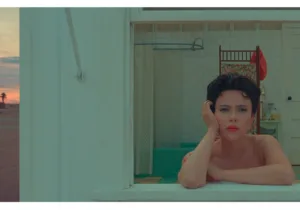
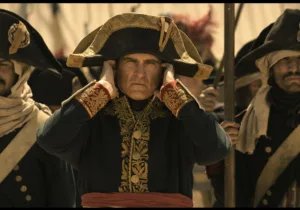
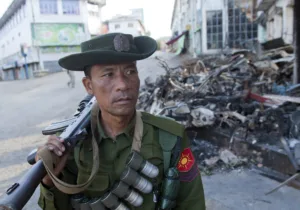
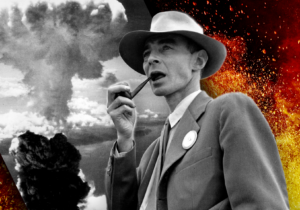
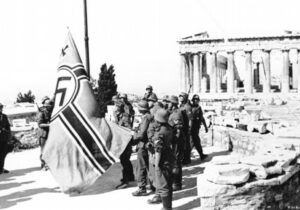

 Sponsor a student for Christianity & National Security 2024
Sponsor a student for Christianity & National Security 2024